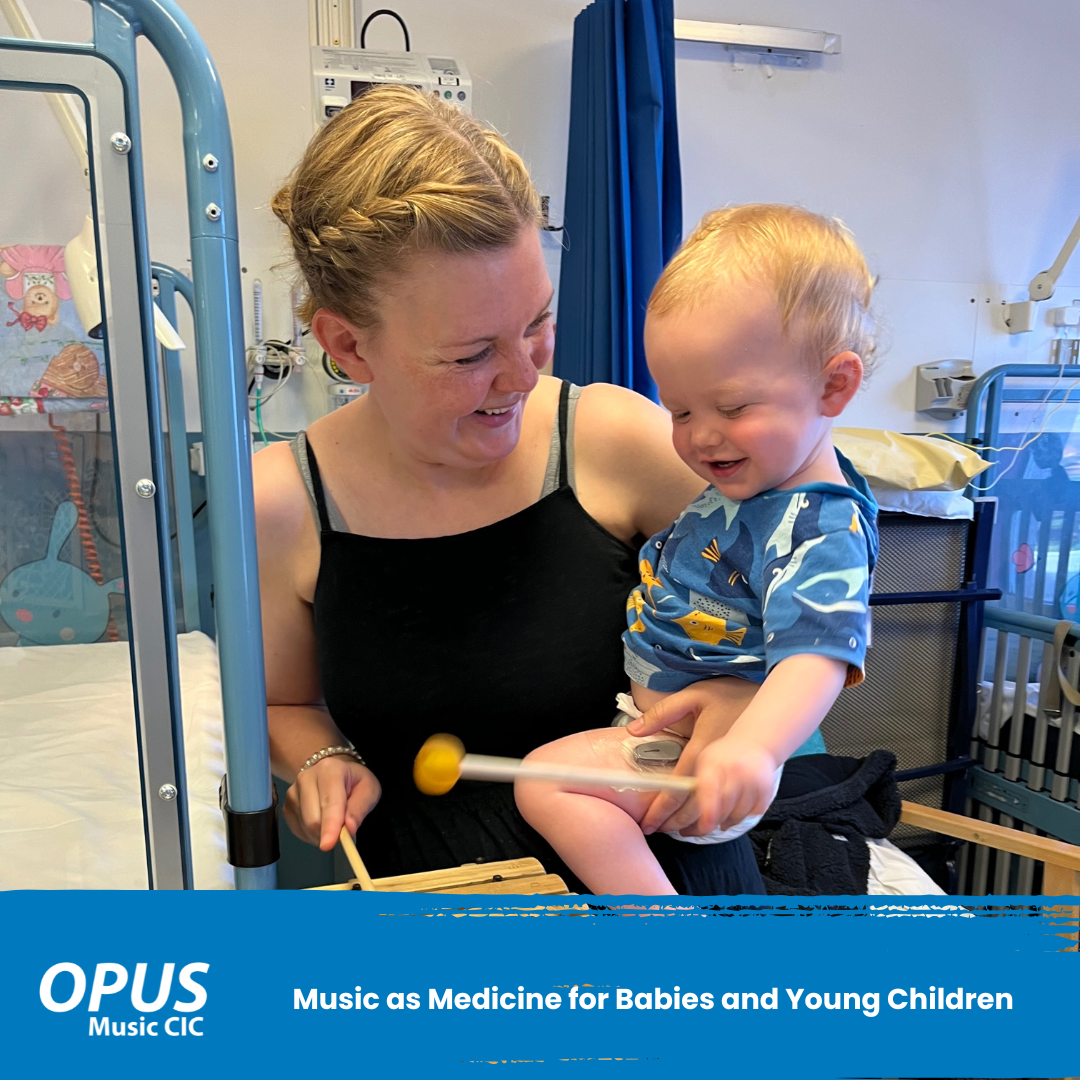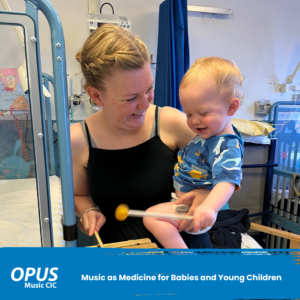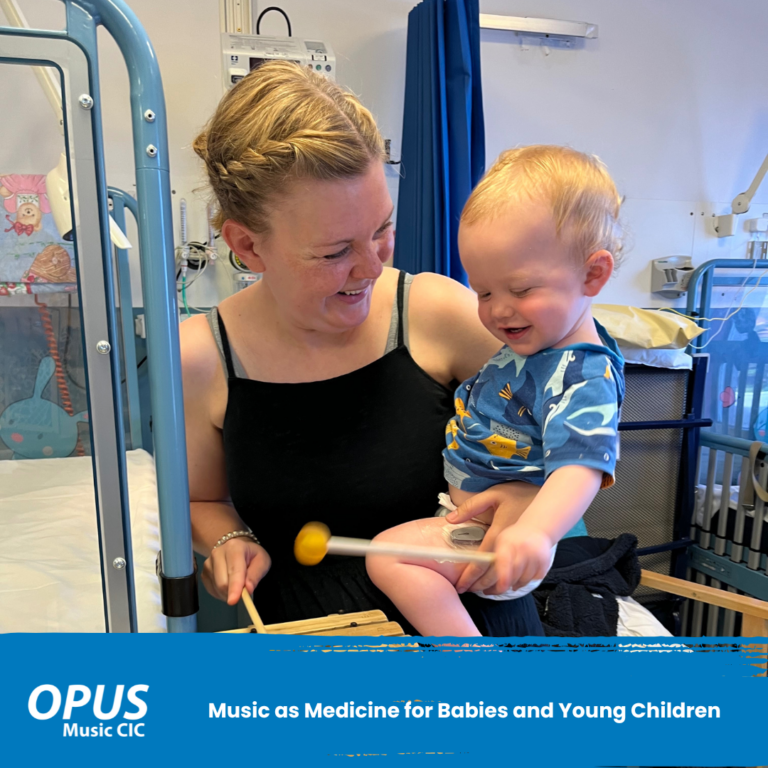Claire & Flo’s Story
Claire & Flo's Story

The Power of Music in the Toughest Times
Shared by Claire, Flo’s mum
At just 2 years and 8 months old, Florence has already shown more courage than many of us do in a lifetime. Born with Hypoplastic Left Heart Syndrome – a rare and serious condition affecting normal blood flow through the heart – Flo’s journey has been anything but ordinary. Her life has been filled with hospital stays, procedures, and challenges that no child should ever have to face. But through all of it, there has been a constant presence bringing light, joy, and calm: music, and the musicians of OPUS Music CIC.
Claire first met the OPUS musicians when Florence was just 3 to 4 weeks old. “It was early,” she says, “but I remember it so clearly. The moment they stepped onto the ward, something shifted.” Over the past two years and eight months, OPUS has become a familiar and comforting presence for Flo and her family at Leicester Royal Infirmary (LRI).
“There were some days that were really hard in hospital,” Claire recalls, “but you knew if you were going to see OPUS, you knew it was going to be better.”
More Than Just Music
For Claire, OPUS has never just been about the music, it’s about the atmosphere it creates, the joy it spreads, and the relief it brings. “It was such a lift for everyone’s mood, even the nurses on the ward. You noticed a change in them because of the music. The kids giggling, finding it funny or nice. It made everyone a bit lighter.”
She remembers sessions when OPUS visited while Florence was undergoing procedures: “She was really chilled because she had the musicians there and they engaged her. I was always like, please come in, you make it better!”
Music, Claire says, brings a different vibe, a positive energy that changes the space completely. “Having music around you makes you a happier person. It brought the smiles out in all the kids. It made you happier because you saw the effect it was having on the children.”
A Spark of Florence
One moment Claire will never forget came after Florence’s second cardiac arrest. “She was very vacant,” Claire remembers. “Before that, she had a piece of music that she loved. When she came out of sedation, we hadn’t seen any of our Florence , she was just not there. Then we played the song… and we saw a spark of recognition. We were like oh my goodness, she is there, she’s in there! That really shows how important music is.”
Part of a Bigger Network of Support
Alongside the support of OPUS, Claire and Florence have also been helped by Rainbows Hospice and several charities. It’s taken a whole community to walk this path with them, but music has played an especially unique role, cutting through fear and stress, and reaching parts of Flo that nothing else could.
Claire documents their journey on social media, sharing their ups and downs and raising awareness of congenital heart disease. You can follow their story here:
📷 Instagram: Florence_and_the_heart_machine
🎥 TikTok: ClaireandFlo
At OPUS, we believe music has the power to connect, soothe, and heal. Flo’s story is just one example of the many lives touched by music in healthcare settings. We’re deeply grateful to Claire for sharing their journey and for letting our musicians walk a small part of it with them.
Read More

Claire & Flo’s Story
At just 2 years and 8 months old, Florence has already shown more courage than many of us do in a lifetime. Born with Hypoplastic Left Heart Syndrome – a rare and serious condition affecting normal blood flow through the heart – Flo’s journey has been anything but ordinary. Her life has been filled with hospital stays, procedures, and challenges that no child should ever have to face. But through all of it, there has been a constant presence bringing light, joy, and calm: music, and the musicians of OPUS Music CIC.

Music as Medicine for Babies and Young Children
When a child is admitted to hospital, it can be a time of deep stress and uncertainty, for the young patient, their family, and even the clinical staff around them. At OPUS Music CIC, we’ve long believed in the power of live music to support health and well-being, especially in the hospital environment. But belief alone is not enough, we also turn to science to back our work. Increasingly, medical research supports what we see every day: music can have measurable, beneficial effects on babies and young children in hospital, helping to reduce stress, ease pain, improve physiological stability, and support family bonding.

OPUS’ Response to the Climate Emergency
As part of our ongoing response to the climate emergency, we have taken inspiration from an exploratory session with climate activist and Healthcare Musician Dave McKenny.







































